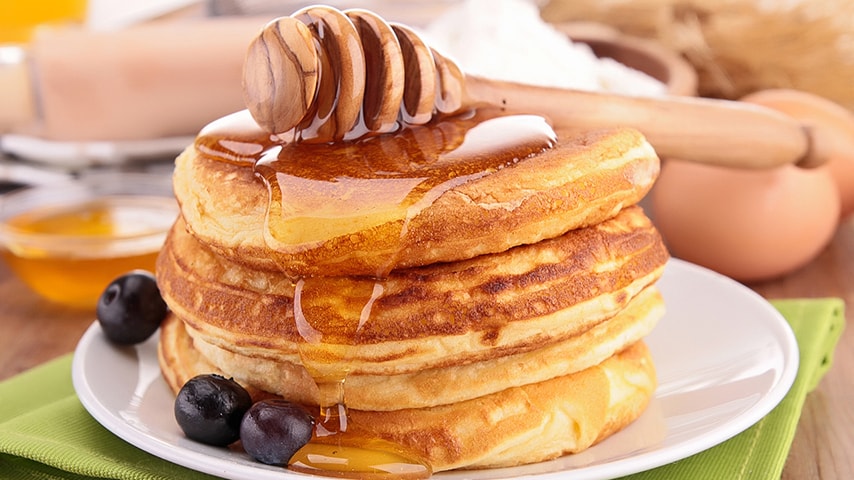
Diet plan in fever
Fever is the commonest condition we all have undergone at some point in life. Let’s see what changes in our diet can help us to deal with it better.
Introduction
Fever is described as an elevation of body temperature above the normal, resulting from an imbalance between the heat produced in the body and that eliminated from the body. Fever in itself is not a disease but is a considered as a sign of any infection or inflammation. Some of the metabolic effects of fever are:-
- Increase in the BMR which is almost 7% for every degree rise in temperature.
- Decreased glycogen stores from the adipose tissue.
- Increased catabolism of proteins due to infection.
- Accelerated loss of body fluids owing to increased perspiration and excretion of wastes.
- Increased excretion of sodium and potassium.
- G.I metabolism gets altered due to altered motility of Gastrointestinal tract.
Dietary guidelines
- Due to increased BMR, energy requirements get increased specifically if the temperature is high and prolonged. So easy to digest cereals and pulses should be included with moderate amount of fat, sugar, honey etc as they help to enhance the energy content of the food.
- High protein diet should be given including milk and milk products, whey protein, egg, chicken and fish.
- As glycogen stores get depleted, so liberal intake of CHO should be taken to meet the calorie requirement. Sweetened beverages, fruits or fruit juices should be taken as they help in reserving of glycogen.
- Emulsified form of fat’s should be included in the diet as cream or butter to increase the energy intakes well as they maintain the body reserves and can be easily digested.
- Fried foods should be avoided as they are not better tolerated and may cause nausea.
- Adequate amount of fruits and vegetables should be included in the diet as they contain good amount of micronutrients like vitamins and minerals which are lost due to many metabolic changes.
- Have plenty of fluid as losses of fluid from skin via perspiration have been increased. Fluid intake should be increased in the form of juice, soups, milk, buttermilk, water etc. Adequate fluid intake helps in maintaining adequate urine output which facilitates waste excretion.
Lifestyle modification
- As BMR is increased have plenty of easy to digest foods at an interval of 2 hrs.
- Try to have small walks in between the meals so that blood circulation becomes active.
- Don’t skim the meals at its delay the effect of medicines and also affect the peristaltic movement.
Foods avoided
- Ghee
- fried foods
- ice-creams
- sweets
- heavy puddings
- heavy bakery products
- alcoholic drinks
- aerated soft drinks
- preservative foods.
Foods allowed
- All cereals
- pulses
- vegetables
- fruits
- soups
- light puddings
- juices
Diet equation for calculation of calories intake
For males:
(66.47) + (13.75 * weight in kg) + (5.0 * height in cm) – (6.78 * Age in years)
For females:
(655.10) + (9.56 * weight in kg) + (1.85 * height in cm) – (4.68 * Age in years)
Sample menu according to Indian diet
Approx total calories:
Energy 2000Kcal, Protein 75gm, Fat 45gm, Carbohydrates 325gm
Early morning:
Energy 120 Kcal, Protein 2.5gm, Fat 6.5gm, CHO 40gm
- Green tea/weak tea/milk (1 cup) with biscuit/rusks (1 to 2 pieces)
Breakfast: (with a gap of 1 hr)
Energy 370 Kcal, Protein 15gm, Fat 10gm, CHO 45gm
- Milk-1 cup with daliya/oats/wheat flakes or Veg snacks like oats poha/veg daliya/rice poha/veg idli (1 quarter plate) or sooji kheer/sago kheer (1 bowl) or veg sandwich (1 to 2) with egg/paneer
Mid morning: (with a gap of 2 hrs)
Energy 60 Kcal, Protein 2.5gm, Fat 1gm, CHO 15gm
- Fruit juice/Veg juice (1 glass) or fruit (1)
Lunch: (with a gap of 2 hrs)
Energy 470 Kcal, Protein 22gm, Fat 10gm, CHO 80gm
- Rice (1 bowl)
- Chappati (1)
- Cooked Vegetable (1 bowl)
- Paneer veg/soya veg/cooked dal (1 bowl)
Evening tea: (with a gap of 2 ½ to3 hrs)
Energy 220 Kcal, Protein 6.5gm, Fat 6.5gm, CHO 45gm
- Tea/Green tea/milk (1 cup)
- Biscuits (2pieces) or bread with boiled egg/paneer/jam (1/25 gm)
Pre-dinner: (1 ½ hr before dinner)
Energy 100Kcal, Protein 2.5gm, Fat 1gm, CHO 20gm
- Clear Soup (1 bowl) or Fruit Chat (1 bowl) or Fruit juice (1 glass)
Dinner: (3 hrs before bedtime)
Energy 320 Kcal, Protein 10gm, Fat 10gm, CHO 45gm
- Chappati (1 to 2)
- Cooked vegetable (1 bowl)
- Cooked dal (raw 25 gm) 1 bowl or Khichi (1 plate) or Veg pulao/Rice with dal (1 plate)
Post dinner: (at least 1 hr before bedtime)
Energy 250Kcal, Protein 8.5gm, Fat 6.5gm, CHO 20gm
- Fruit custard (1 bowl) or Milk with Dates (1 cup)

Add a comment